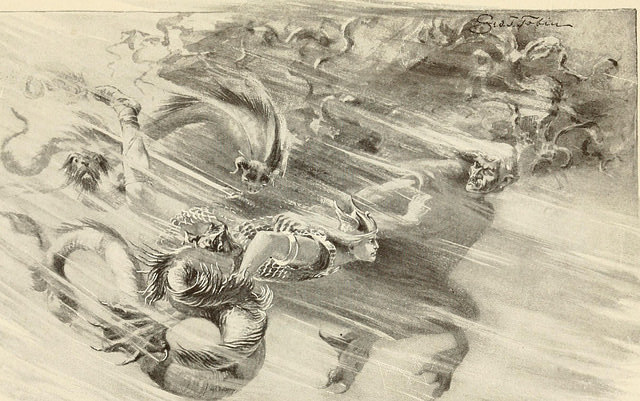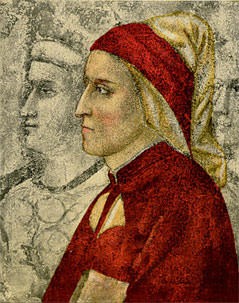On Heroes and Monsters: The Proposed Influence of the Aeneid on Beowulf
The proposed study will take an indepth approach by examining two sets of passages to show that the similarities between the behaviors, descriptions, and lineages of the heroes and monsters are so precise that they exclude many other possible influences of Beowulf.
What Women Want: Female readers of Virgil’s Aeneid in the Middle Ages
Emma evidently knew Virgil’s epic, to which the text she commissioned makes explicit reference, and commissioned a Latin work modelled on it as a political tool to influence the actions of men.
Mnemotechnics and the Reception of the Aeneid in Late Antiquity and the Middle Ages
If Simonides was the inventor of the art of memory, and ‘Tulliua’ its teacher, Thomas Aquinas became something like its patron saint.
The Aeneid and The Inferno: Social Evolution
The similarity between Dante’s The Inferno and Book VI of Virgil’s The Aeneid is, in many cases, clear. Both stories are written as Epic journeys. The Aeneid follows the journey of Aeneas from a sacked Troy to Italy, where he begins a new life and starts to build a new city for the homeless Trojans.
Imtheachta Aeniasa: Virgil’s “Aeneid” in Medieval Ireland
The project of the Irish translator of the Aeneid was strikingly different from that of a modern translator, of Virgil or of any other author: Whereas the modern translator will strive to convey in a different language both the substance and the form of his source (although there are always problems with metrical texts), the medieval translator, particularly of secular narratives, was primarily interested in ‘acceptability (to the recipients) rather than adequacy (to the original)’ .
The Methods of Medieval Translators: A Comparison of the Latin Text of Virgil’s Aeneid with its Old French Adaptations
This monograph examines the medieval French translation/adaptation of Virgil’s Aeneid. The work employs Relevance Theory, second language pedagogy and hermeneutics in its analysis.
Brute force: Medieval foundation myths and three modern organizations’ quests for hegemony
This article takes the narrative tropes of Europe’s archetypal national foundation myth, the founding of Rome, retold in the epic Latin poem, Virgil’s Aeneid, and traces their reemergence in the foundation stories of three major modern organizations.
The Hero as a Reflection of Culture
As heroes, Achilles, Aeneas, Beowulf, and Roland reflect the values of the societies that created them.





